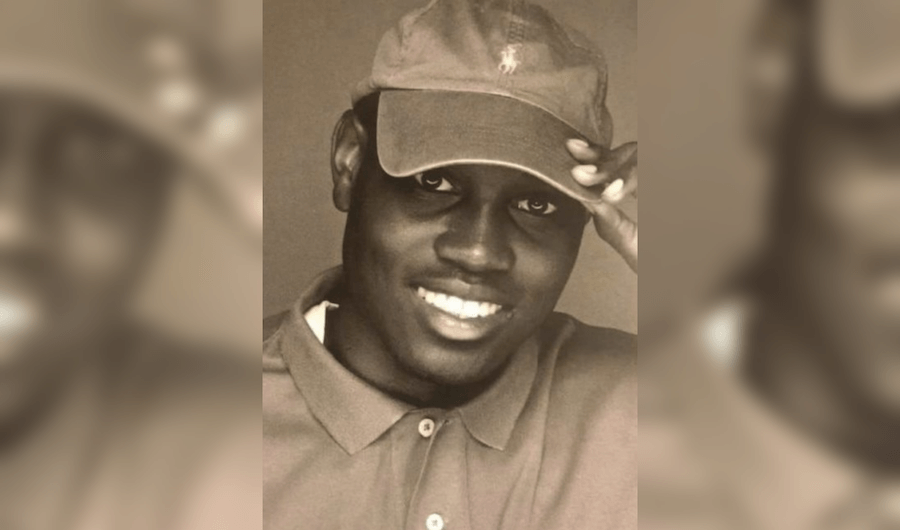Author: Rhonda Tsoi-A-Fatt, EdD
Jogging on a sunny spring day is normal. Chasing, shooting, and murdering a Black man while he is jogging is NOT normal.
Playing music outside and enjoying yourself is normal. Being shot and killed because someone else does not like your music is NOT normal.
Walking to the convenience store to grab some snacks is normal. Being gunned down on the sidewalk while walking home is NOT normal.
Getting a driver’s license, a significant teenage milestone often met with celebration, is normal. The deep anxiety and stress that a Black parent feels when it’s time for their child to get a driver’s license is NOT normal.
Going to the mall to shop with friends and enjoying a pizza is normal. The chest-gripping fear, shallow breathing, and even sharp pains that a Black parent feels when a child is fifteen minutes late for curfew is NOT normal. The release of shoulders, sigh of relief, relaxing of jaw muscles that a Black parent experiences when their child finally walks through the door is NOT normal.
I spend another Mother’s Day grateful for my children’s safety, and yet keenly aware and saddened that there are weeping Black mothers all across this country.
This is the America that Black people experience. This is the America that we are all living in. An America that, since its very beginnings, has dehumanized Black people and, indeed, all people of color. White America has systematically demonstrated that the bodies of people of color are disposable. From using our bodies for economic gain to demonizing our bodies to create fear, this notion of control over bodies and the boundless ability to take the lives of people of color is a theme that runs deep in our nation’s narrative. And while society tries to downplay the abuse people of color as ancient history that should be laid to rest, the truth is that in my own short lifetime, the chasing, beating, burning, dragging, and shooting of Black bodies remains a part of my reality and the regular news cycle.
No matter how long it’s been happening, YOU CAN’T CONVINCE ME THIS IS NORMAL.
***
The media coverage has seemingly desensitized the American public to some to these happenings but let me tell you, Black folks are not desensitized. Black people are living in a traumatizing state of anguish with deeply emotional responses ranging from a deluge of tears or profane ranting to stunned silence and internal weeping.
Every incident is profoundly re-traumatizing. Each heinous act of dehumanization, coupled with the injustice that white aggressors are largely free from consequence, carries the message: “You, Black child, are unworthy. Your body and your life have no value. You, Black parent, have no recourse. This is our America where we can kill Black people without fear of punishment.”
Racialized trauma carries deep emotional and physical consequences for people of color. The mental scars will be felt most deeply by those who knew Ahmaud Arbery best. However, the entire Black community also experiences mental scars. The continual reminder that society deems us “less than human” is a psychological burden which reinforces a hopelessness that Black people must fight hard to overcome.1 Research tells us hopelessness is tied to depression, suicidal ideation2, substance abuse, mental health disorders, and violence.3 The physical consequences are also very real. Racialized trauma is linked to higher presence of stress-related hormones4 which set the stage for obesity and heart disease. Teens who experience heightened discrimination have trouble sleeping5, higher blood pressure, higher body mass index, and higher levels of stress-related hormones—all of which are tied to the manifestation of chronic diseases.6
And when we talk about pandemics, like COVID-19, having greater impact on people with underlying health conditions such as chronic lung disease, severe asthma, diabetes, obesity, and kidney disease, we neglect to connect it to the underlying reasons why these health conditions exist in the first place. For Black people, racism, dehumanization, and its accompanying trauma are proven contributors.
Despite all of this, people of color are expected to thrive in this America. They are even blamed for not thriving because this is supposed to be a land of great opportunity where anyone who seeks advancement can attain it. Nevertheless, attaining it does not guarantee your safety or wellbeing.
There are many things in America that need to be fixed. Thoughts and prayers for the victims of racial violence are rarely offered and not enough. We must reform gun laws so that guns do not fall into the hands of people who seek opportunities to do intentional harm. We must eliminate Stand Your Ground laws that have been shown to increase violence rather than improve safety. We must reform our justice system so that racists who commit these crimes are not protected by loopholes in the legal process, by insufficient investigation, and by corruption. We must change the way media covers the stories of these incidents. Too often, coverage is slanted to reinforce the loopholes and racism that exist in our legal system and demonizes victims of color by unearthing any speck of dirt that can be found about them. They use the most stereotypical pictures that conjure up false narratives of the predatory and dangerous characteristics of Black boys and young men. All the while forgetting to state the obvious: this person was a victim.
These abnormal atrocities cannot continue.
We, who believe in freedom, will not rest. We will not rest until this country sees the humanity of people of color, guarantees our safety, and provides real opportunities to thrive.
References:
- Madubata, I. J., Odafe, M. O., Talavera, D. C., Hong, J. H., & Walker, R. L. (2018). Helplessness mediates racial discrimination and depression for african american young adults. Journal of Black Psychology, 44(7), 626–643. Retrieved from https://doi.org/10.1177/0095798418811476
- Polanco-Roman, L., & Miranda, R. (2013). Culturally related stress, hopelessness, and vulnerability to depressive symptoms and suicidal ideation in emerging adulthood. Behavior Therapy, 44 (2013), 75-87.
- Smith-Bynum, M., Lambert, S., English, D., & Ialongo, N. (2014). Associations between trajectories of perceived racial discrimination and psychological symptoms among African American adolescents. Development and Psychopathology, 26(4pt1), 1049-1065. doi:10.1017/S0954579414000571
- Lee, D. B., Peckins, M. K., Heinze, J. E., Miller, A. L., Assari, S., & Zimmerman, M.A. (2018). Psychological pathways from racial discrimination to cortisol in african american males and females. Journal of Behavioral Medicine, 41(2): 208–220. doi:10.1007/s10865-017-9887-2. Retrieved from https://www.ncbi.nlm.nih.gov/pmc/articles/PMC5844784/pdf/nihms908411.pdf
- Wang, Y., Yip, T. (2019). Sleep facilitates coping: Moderated mediation of daily sleep, ethnic/racial discrimination, stress responses, and adolescent well‐being. Child Development. Retrieved from https://srcd.onlinelibrary.wiley.com/doi/full/10.1111/cdev.13324
- Brody, G. H., Lei, M. K., Chae, D. H., Yu, T., Kogan, S. M., & Beach, S. (2014). Perceived discrimination among African American
adolescents and allostatic load: a longitudinal analysis with buffering effects. Child development, 85(3), 989–1002. Retrieved
from https://doi.org/10.1111/cdev.12213




